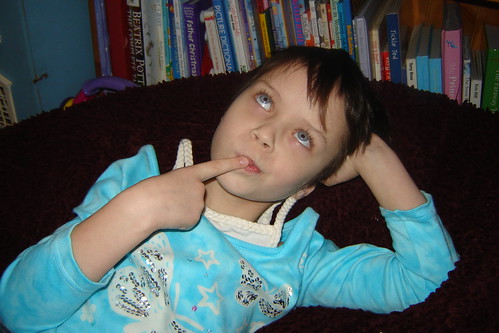 What are Metacognition skills? Metacognition refers to a child’s awareness about his or her own learning process and chosen strategies towards learning. For example, metacognition helps a child to choose the best problem solving strategy for her learning style, or to notice if one area of learning is harder for her than another. Metacognition includes self-awareness, self-monitoring, self-regulation, and other higher level cognitive tasks that allow us to have control over our own learning. Essentially, metacognition enables us to be successful learners.
What are Metacognition skills? Metacognition refers to a child’s awareness about his or her own learning process and chosen strategies towards learning. For example, metacognition helps a child to choose the best problem solving strategy for her learning style, or to notice if one area of learning is harder for her than another. Metacognition includes self-awareness, self-monitoring, self-regulation, and other higher level cognitive tasks that allow us to have control over our own learning. Essentially, metacognition enables us to be successful learners. Children who have difficulty with metacognition may present as poor learners. For example, they may overestimate their memory, may not try different learning approaches, and may not see that one problem can be solved several ways. These children may struggle academically because they have acquired less knowledge, but also because they fail to utilize the knowledge they have and are not able to effectively plan, strategize, or monitor progress. Metacognitive deficits are most commonly associated with ADHD, Autism Spectrum Disorders, traumatic brain injuries, and learning disabilities. Children with weak metacognitive skills are more at risk for anxiety, depression, and academic hardship due to the frustration they face on a regular basis.
In the classroom, children who have weak metacognitive skills need to be taught how to study effectively, how to navigate problem solving approaches, and how to organize oneself in order to learn efficiently and successfully. While all students need guidance in learning new topics (e.g., they may take notes from the board to use when studying later on), a student with metacognitive weakness may unknowingly take their notes in a disorganized way, may leave out important information, or may attempt to process the information in a way that is ineffective. Instead of trying, failing, and trying something else, this student may try the same failed technique multiple times or may give up from frustration after multiple failed attempts. These children may present as disorganized, absent-minded, and scattered because of their inability to properly prepare themselves for learning.
At home, children who have weak metacognitive skills may struggle with complex, multi-step tasks that require forethought and organization. For example, cleaning and organizing one’s bedroom may require multiple steps that are best executed in a certain order. While most children probably don’t want to clean their room and may choose not too, a child with strong metacognitive skills can tell their parent or sibling how they would go about cleaning and organizing a whole bedroom. A child with weaker metacognitive skills may struggle to order which tasks should happen earlier or later, and may be completely be overwhelmed with how to do this effectively. Parents may notice that a child with weak metacognitive skills need concrete step-by-step instructions and are less able to independently follow a broad command that requires several steps.
Metacognition is described as an important component of executive functions by Robbins (1996) who identifies “monitoring of behavior relative to internal affective and motivational states,” by Anderson (2002) as the “utilization of feedback,” and by Oosterlaan, Scheres, & Sergeant (2005) as the “metacognitive processes.”
Neuropsychological assessment of metacognitive skills is seen on measures such as the Thematic Apperception Test, and the Roberts Apperception Test. Metacognition is measured in tests such as the D-Kefs Sorting, 20 Questions, and Proverb subtests.
The Executive Skills Questionnaire measures metacognition and the capacity for self-reflection. The Behavior Rating Inventory for Executive Functions has a Monitor scale which primarily focuses on metacognitive skills. The Brown ADD Scales have a monitoring and self-regulating action scale that taps into both impulsivity and the capacity to control and reflect upon one’s actions. The Barkley Deficits in Executive Functioning Scale has the self motivation scale that reflects self-determination and, to some degree, issues of persistence.
Check out these resources to learn more about Metacognition:
LearningWorks for Kids: The premier resource for executive function information, offering a detailed explanation of metacognition, tips for parents, and activities to improve this skill.
US Department of Education: A site which offers additional strategies for developing metacognition, tips for creating a metacognitive environment, and a list of additional resources to consult on this topic.
University of Buffalo: A more technical overview of metacognition that addresses many areas of metacognitive research.
Photo Credits: “Thinks!” (CC BY-NC 2.0) by Prisoner 5413
Receive online class information and helpful tips from Dr. Randy Kulman's LearningWorks for Kids |




